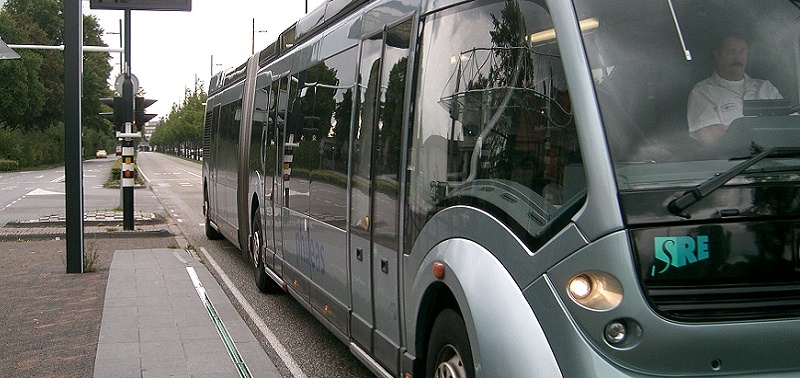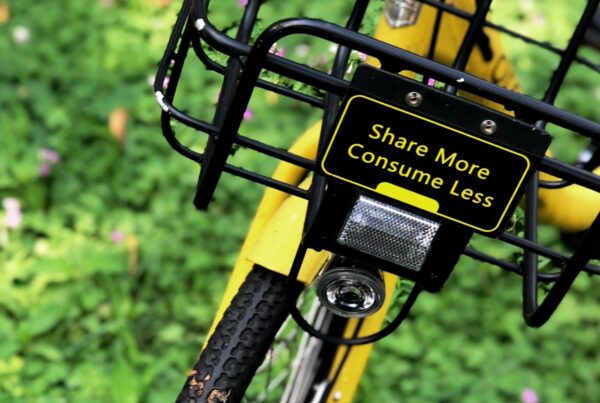People like to talk about the promise of mobility on demand and the shift from a “buy/own” model of transportation to one that emphasizes renting and access.
It’s a popular conference agenda item, and no one’s arguing against it…after all, the concept of replacing roadway-clogging private autos with flexible networks of buses, driverless cars and shared vehicles sounds like a winner.
While in the U.S. we seem to be content to ruminate on what the future may hold, several European cities are actually experimenting with the idea. Here are three cities that have taken the first step in making on-demand mobility a reality:
UbiGo: Gothenburg, Sweden
UbiGo is a 2013 Swedish pilot project that combined several modes into a single, comprehensive service. Through the pilot, 70 households in the city of Gothenburg were given monthly subscriptions to their desired combination of transportation services – including transit, carsharing, bikesharing, car rental and taxis – which were all managed using a single web-based app.
UbiGo users could use the service to sign up for a certain number of daily transit tickets for the month, for instance, or a number of monthly carsharing credits in the form of hours. If a household had more transportation needs during the month, additional credit could be purchased through the app. Any credits not used could be rolled over into the next month. UbiGo also rewarded participants for using eco-friendly modes of travel like biking or transit, awarding points that could be exchanged for prizes such as gift cards and concert tickets.
After the initial six months of testing, no household stopped using UbiGo, and nearly 80 percent indicated that they would be interested in becoming an UbiGo customer if the pilot became a regular service. Additionally, in a follow-up survey, many participants stated that they had become less reliant on private cars and were more likely to use other forms of transportation such as public transit, walking and cycling after their participation in the pilot.
Mobility Mixx: Netherlands
Dutch company Mobility Mixx provides a full range of mobility services – including rental cars, public transit, carpooling, bikesharing, auto fuel and taxis as well as trip scheduling and payment – together in one package.
While the company is currently focused on serving business travelers, it’s not hard to imagine people using one Mobility Mixx-like service to manage the travel in their personal lives, too.
The company’s Mobility Card allows employees to make use of various modes of travel while automatically tracking costs. Employees can then send monthly reports directly to their employers, instead of having to track and tabulate travel expenses manually.
Employers can also set up the system to provide each employee with a set mobility budget for the month that they can use as they see fit. If employees choose to travel by less expensive modes such as transit instead of by auto, they gain money. Companies can also use Mobility Mixx to help meet Corporate Social Responsibility goals by encouraging employees to use sustainable travel options.
SMILE: Vienna, Austria
Vienna’s SMILE pilot provides multimodal travel information, payment and booking all through a single mobile app. The research project, which is currently underway, is funded by the Climate and Energy Fund of the Austrian Federal Government.
SMILE allows users to access a variety of services such as carsharing, e-bikes, transit and parking garages –using a single, easy-to-navigate mobile interface. The SMILE app keeps users informed about the transportation available around their location, helps them select the most efficient route to their destination and provides them with ticket and pricing information.
Users can also input their travel preferences and available options – such as transit cards, bike or carsharing memberships, and private vehicles – to customize the app’s route suggestions. Additionally, unlike similar mobile apps in the U.S., SMILE also goes the extra step and allows users to book tickets and rides directly through the app.
So why does Europe seem to have an edge when it comes to mobility on demand and other transportation pilots?
For one, many European cities are less car-centric than the US and have more extensive public transit systems from which to build. Another clue could be derived from the conversation at the Live Ride Share conference in LA earlier this year, where Transport For London’s Ben Plowden marveled at the many overlapping public agencies in U.S. cities, and the difficulty of getting public and private sector organizations to coordinate on transportation projects.
Whatever the case, the good news is that mobility on demand looks to be on the horizon for cities in the U.S., Europe and the rest of the world.
For more on the latest trends affecting the transportation industry, be sure to subscribe to the Shared-Use Mobility Center’s regular newsletter.



